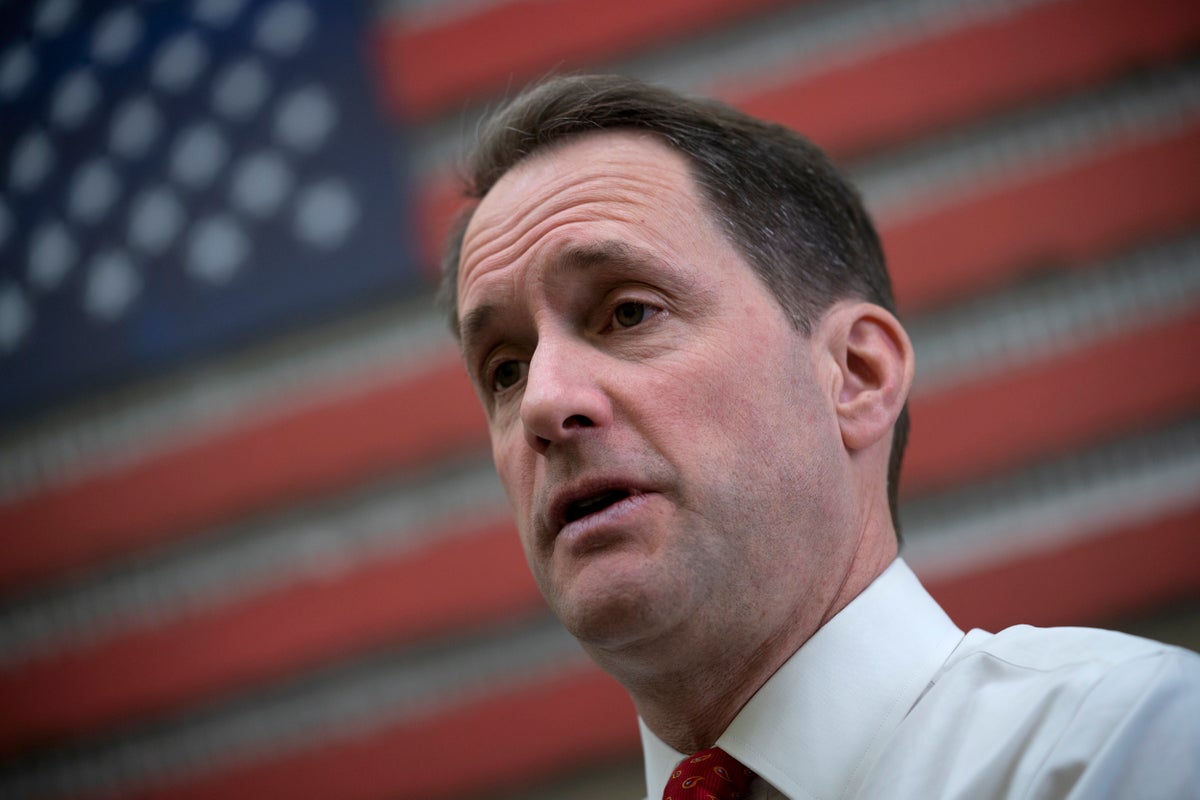
The new top Democrat on the House Intelligence Committee on Wednesday called for more information about the classified records discovered in the private possession of President Joe Biden and former President Donald Trump.
Rep. Jim Himes of Connecticut was named the committee’s ranking member Wednesday by House Minority Leader Hakeem Jeffries. Along with Ohio Rep. Mike Turner, the committee's new Republican chairman, Himes will lead a panel that has been split by highly political fights in a break from its traditionally quieter oversight of the U.S. spy agencies.
Turner and the leaders of the Senate Intelligence Committee have in recent weeks pushed the White House to share more in private about the classified material found. The U.S. Office of the Director of National Intelligence has declined to comment on its review of classified material, which is also the subject of multiple Justice Department investigations.
“There’s a strong bipartisan concern that Congress is not being briefed on even preliminary reviews of classified information that might have been exposed,” Himes said in an interview Wednesday with The Associated Press. “That’s wrong. That’s wrong as a matter of law.”
The intelligence committees already face several major tests this year, from multiple discoveries of top leaders keeping classified documents to the fight over whether to renew foreign surveillance powers used by the FBI, National Security Agency and other spy agencies.
Himes succeeds Rep. Adam Schiff, who was Jeffries’ original pick to lead the Democrats but along with Rep. Eric Swalwell was denied a spot on the panel by House Speaker Kevin McCarthy.
McCarthy accused Schiff of lying to Americans when he led the Intelligence Committee during the first impeachment of Trump, who was accused of withholding military aid to Ukraine unless President Volodymyr Zelenskyy announced an investigation of Biden and his son.
And McCarthy alleged Swalwell was compromised based on his contact with a suspected Chinese spy. Both Schiff and Swalwell denied McCarthy's allegations and accused him of taking political retribution.
Himes said Republicans had wrongly accused Swalwell of being a security risk and said Schiff had been a strong leader of the panel.
“It's not that hypocrisy is a new thing to me, but in this case, it obviously removed some real institutional knowledge from the committee, so I was disappointed," Himes said.
But Himes said he and Turner have a “really good working relationship” and noted that they traveled to Ukraine together last year to meet Zelenskyy.
“When you spend 12 hours on an overnight train together, you get to know each other a little bit,” Himes said. “He's extremely knowledgeable on a lot of topics, so I'm really looking forward to working with him.”
In the interview, Himes outlined his priorities for the committee as well as his views on Russia and China.
He called on the Biden administration to supply Ukraine with the longer-range missiles it has long sought to fend off Russia, saying the U.S. must prevent the war from becoming a stalemate.
Himes and others say the U.S. should grant Ukrainian requests for the Army Tactical Missile System, known as ATACMS, which use the same launchers as the HIMARS rockets that Kyiv has successfully used but have a range as much as three times greater. U.S. officials have been concerned that Ukraine could use longer-range missiles to strike targets inside Russia and possibly provoke a direct war between Washington and Moscow.
“We’ve done a great job, but that we haven’t pressed the accelerator quite as much as we should have,” he said. “A stalemate is a Russian victory, and that can’t be the ending. So we need to give the Ukrainians the tools they need to continue to push the Russians backwards.”
Himes also called for greater discussion of how a war between Beijing and Taiwan would damage American interests and particularly the U.S. economy, given China’s ownership of U.S. sovereign debt and the business relationships between the two countries. He criticized a recent reported statement by Air Force Gen. Michael Minihan, who predicted in a memo that China and the U.S. could be at war in two years.
“Everybody’s starting to listen to the drums of war and how do we arm and how do we fight,” Himes said. “It’s time to really sober up and think harder about how we avoid a military conflict with China.”







